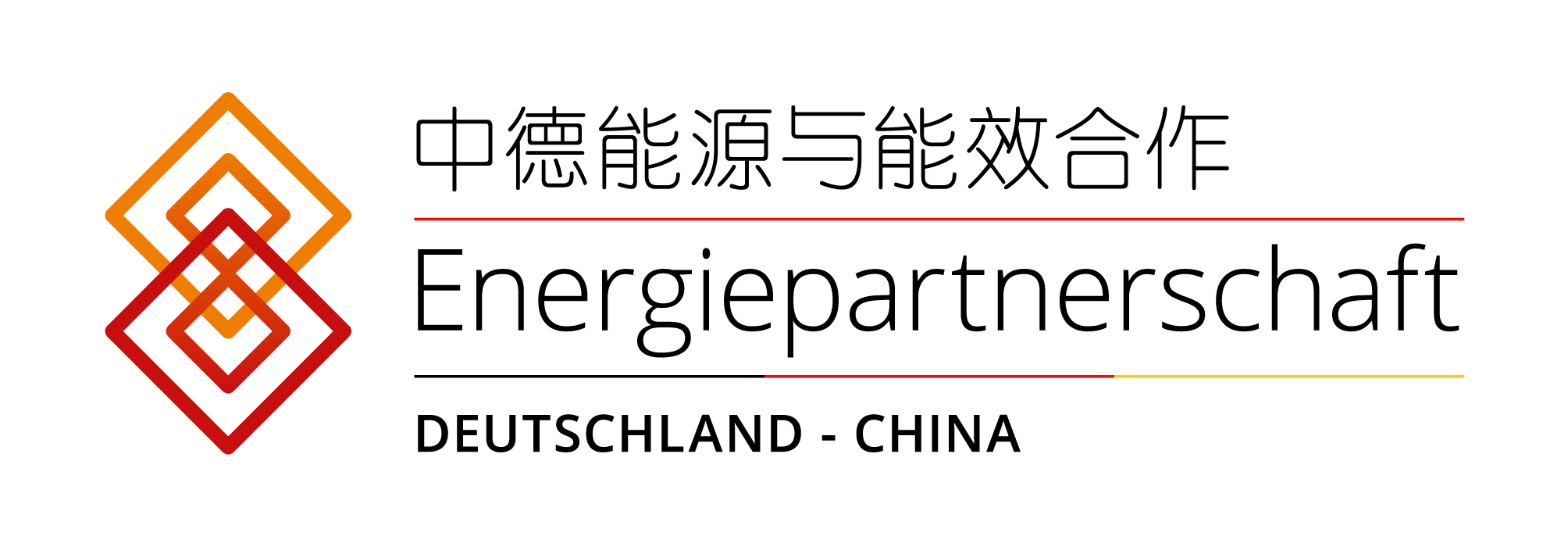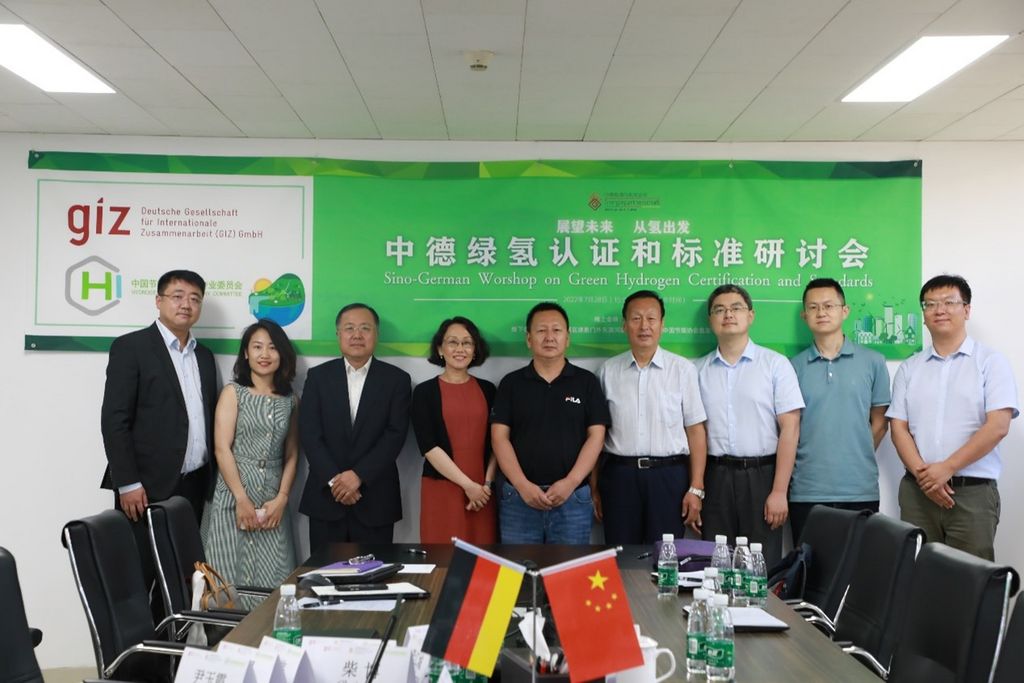Green hydrogen has been hailed as the solution for closing the gaps in the energy transition and decarbonizing hard-to-abate sectors and industries. Within Germany’s National Hydrogen Strategy, the Federal Government has set the goal to generate 28 TWh of green hydrogen by 2030. Similarly, China aims at a green hydrogen production of up to 200,000 tons per year (approx. 6.7 TWh) by 2025. In the mid- to long-term, many governments and companies hope that a new global commodity market for green and sustainable hydrogen will emerge. But how to define “green” hydrogen? And what approaches to certification of green hydrogen already exist in the European Union and China? Which steps are necessary to accelerate the development of hydrogen markets in China and Europe?
To address these questions, on July 28, the "Sino-German Workshop on Green Hydrogen Certification and Standards" successfully took place in Beijing. Jointly organized by GIZ and the Hydrogen Energy Industry Committee of China Energy Conservation Association (HEIC), the event is under the Sino-German Energy Partnership and part of the activities of the Sino-German Working Group on Energy between the German Federal Ministry for Economic Affairs and Climate Action (BMWK) and the National Energy Administration (NEA) of China. Aiming to building an exchange platform for political, academic and industry experts to discuss the experience of China and Europe in the certification and standardization of green hydrogen, the event brought participants from BMWK, NEA, hydrogen associations, academic institutes and companies together.
Ms. Beatrix Massig from the Division Climate and Energy Cooperation with Industrialized Countries, Hydrogen Initiatives of Climate Department, BMWK and Mr. Zhang Jianwei from Division Energy Efficiency and Storage of Energy Conservation and Scientific Equipment Department of NEA gave the opening remarks. Both stressed the significance of strengthening the cooperation to align the certification and standards in green hydrogen to drive the industrial ramp-up.
According to the keynote speech "Hydrogen industry development and green hydrogen standards in China", delivered by Ma Lincong from the National Hydrogen Energy Standardization Technical Committee in China (SAC/TC309), hydrogen will play an important role in China’s future national energy system. In China’s 2030 carbon peak scenario, hydrogen demand will reach 37.15 million tons. The establishment of certification and standards on national and international level is essential for reaching this development goal. He gave inspirational thoughts about challenges and recommendations for green hydrogen standard development in China like system boundaries, balancing of economy and sustainability, lack of database, interaction with green power certificate and ETS etc.
In the following session, experts from GIZ and Wuppertal Institute for Climate, Environment and Energy shared experience on green hydrogen certification and standardization from international and European perspective. Beyond highlighting the reliance on international markets and cooperation to promote hydrogen and stressing the necessity for certification standards along value chains, both experts introduced two reports:
In the final guest discussion session, experts from Wuppertal Institute, TÜV Süd, Siemens Energy and Chinese industry association and research institute exchanged their opinions on:
- How can policymakers facilitate the establishment of green hydrogen certificates and standards?
- Certification and standardization are key to viable business cases and trade. What challenges does the hydrogen industry in China currently face? And how could certification and standards help overcome them?
- How can we ensure that “green” hydrogen is sustainable? Which challenges do we face with respect to the certification of hydrogen in China and Europe? What can China learn from the European case?
The workshop and the intensive discussion again show that cooperation between Germany and China in green hydrogen certification and standardization is crucial to reach climate goals for a clean energy transition.
Sino-German cooperation on green hydrogen:
In the framework of the Sino-German Working Group on Energy between BMWK and NEA, China and Germany are exchanging and discussing topics related to the role of green hydrogen in the decarbonization process to jointly explore the potential of green hydrogen for achieving climate goals. Concrete activities as agreed by both sides during the Working Group meeting in 2022 incudes policy exchange and development such as green hydrogen certification and standards, infrastructure development in the production, storage and transport of green hydrogen. For more information on this topic under the Sino-German Energy Partnership, please contact Mr. Maximillian Ryssel (Maximilian.ryssel(at)giz.de).












